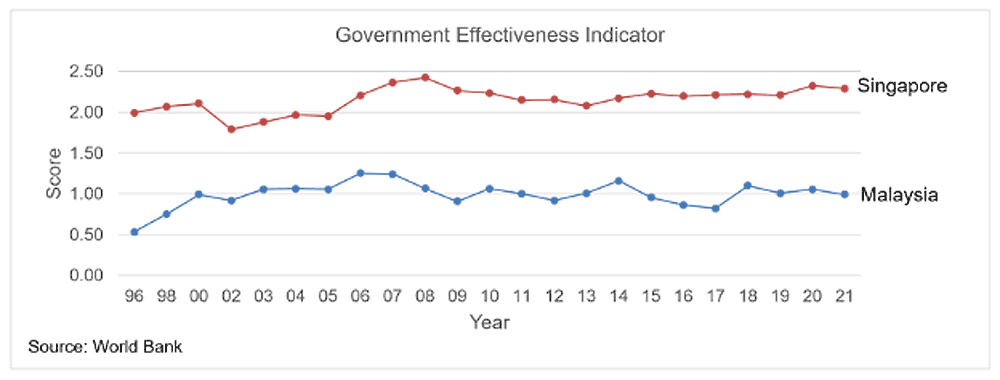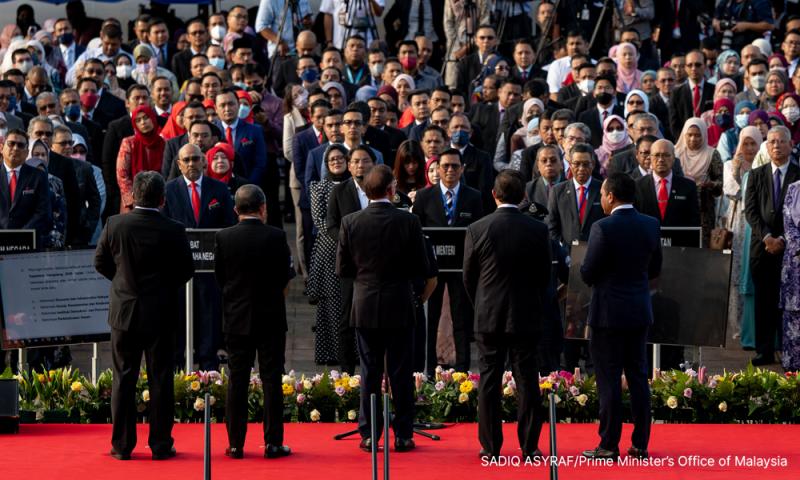LETTER | To answer the question, let’s turn to the Government Effectiveness Indicator by the World Bank that illustrates the quality of civil service, policy formulation and implementation, etc. In 2021, Malaysia scored 0.99 points (-2.5: weak; 2.5: strong), ranking 37th out of 192 countries.
Among the Asean member states, Malaysia ranked third, trailing behind Singapore (2.29 points; first globally) and Brunei (1.45 points; 19th globally).

Notwithstanding the seemingly satisfactory performance in 2021, we should look at the trend over the years. Between the period of 1996 and 2021, Malaysia’s average score was 0.99 points, with a minimum of 0.54 points in 1996 and a maximum of 1.25 points in 2006.
The statistics show that we are not doing better than where we were 15 years ago, and we are also not improving steadily year on year. Understandably, Malaysia as a developing country has a huge room for improvement in its civil service delivery.
Considering the structure that consists of federal and state public service, education service, judicial and legal service, police force and armed forces, it is not an easy feat to transform the civil service but the case for action is dire against the backdrop of an increasingly complex and uncertain world.
With downside growth risks, sporadic Covid-19 outbreaks and geopolitical instability looming in the world, Malaysians expect and require a civil service that acts with a sense of urgency and purpose. This beckons the question as to how civil servants can improve their performance, starting from their day-to-day work.
First, focus on the solution. It is a positive approach that emphasises defining the goal and constructing a plan to achieve it. The aim is to deliver quicker and more citizen-centric results in accordance with the regulations and procedures.
This would mean mobilising existing resources and adopting technologies to develop evidence-based strategies. To this end, civil servants need mastery of a wide range of information, foresight on future scenarios, design thinking skills and IT literacy.
Civil servants also need to take charge and follow through on responsibilities. Even when an assigned task is not aligned with their personal interest, they need to treat it as if it were their own business.

This vested interest will motivate them to make a deliberate decision, seek innovative solutions and deliver the best outcomes on time and within budget. It also supports them to remain tenacious amidst challenges such as legacy structure, increasing complexity of tasks and rising expectations of citizens.
To serve the nation, there is no room for complacency. Civil servants should constantly upskill themselves to keep pace with the increasing complexity of civil service delivery.
Regularly, they should reflect and recalibrate their professional development in order to progress beyond their comfort zone. To determine the areas of skill development, one can refer to the Organisation for Economic Co-operation and Development’s (OECD) civil service skills for public value framework, policy advice and analysis, service delivery and citizen engagement, commissioning and contracting and managing networks.
Civil servants must step up and rise to the expectations of our rakyat in serving the nation. Begin with a mindset change and follow up with prompt actions - it's about time.
The views expressed here are those of the author/contributor and do not necessarily represent the views of Malaysiakini.





